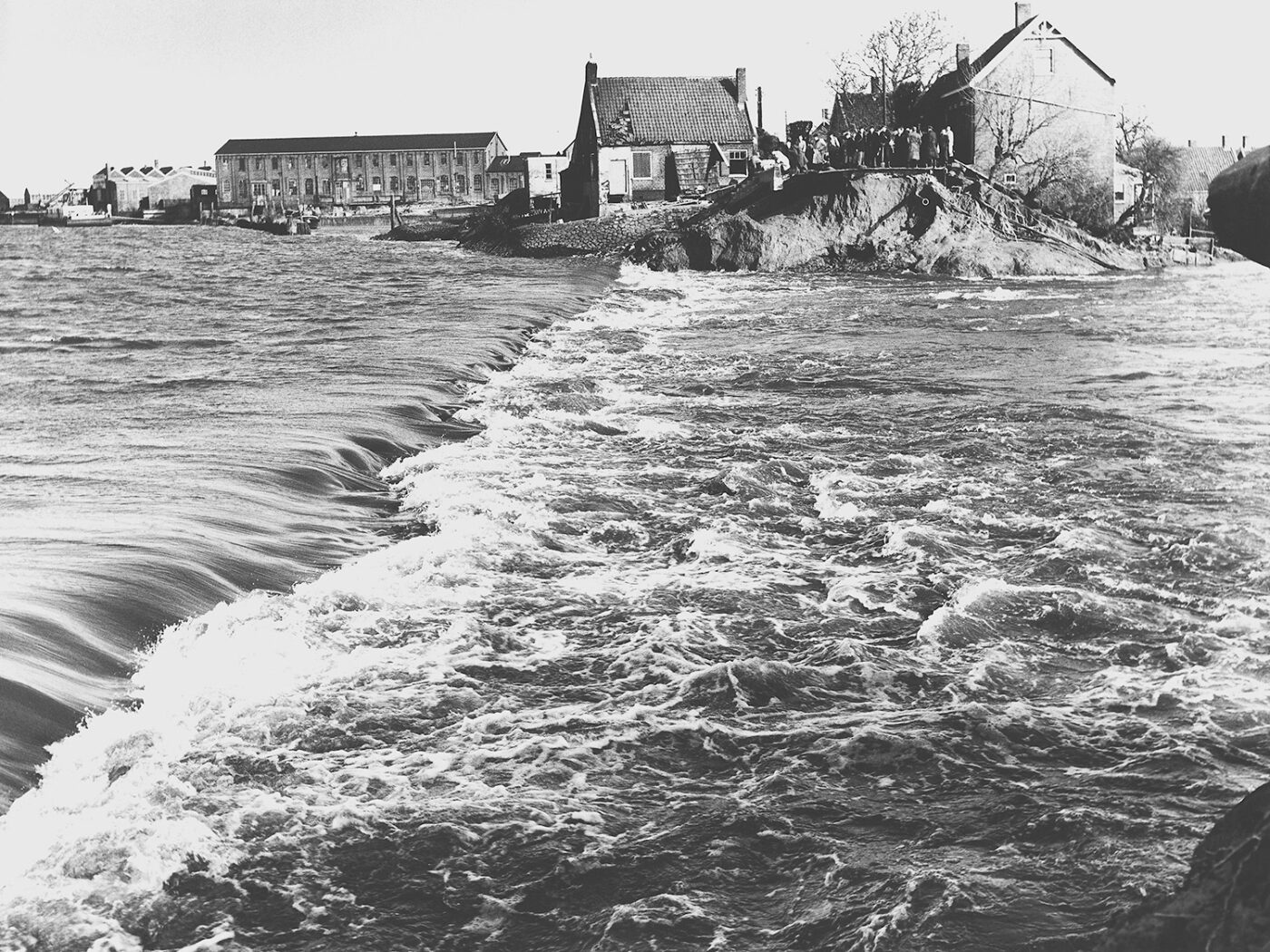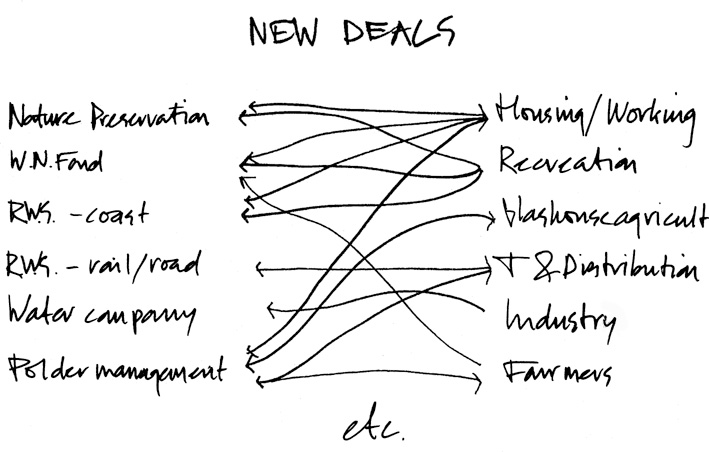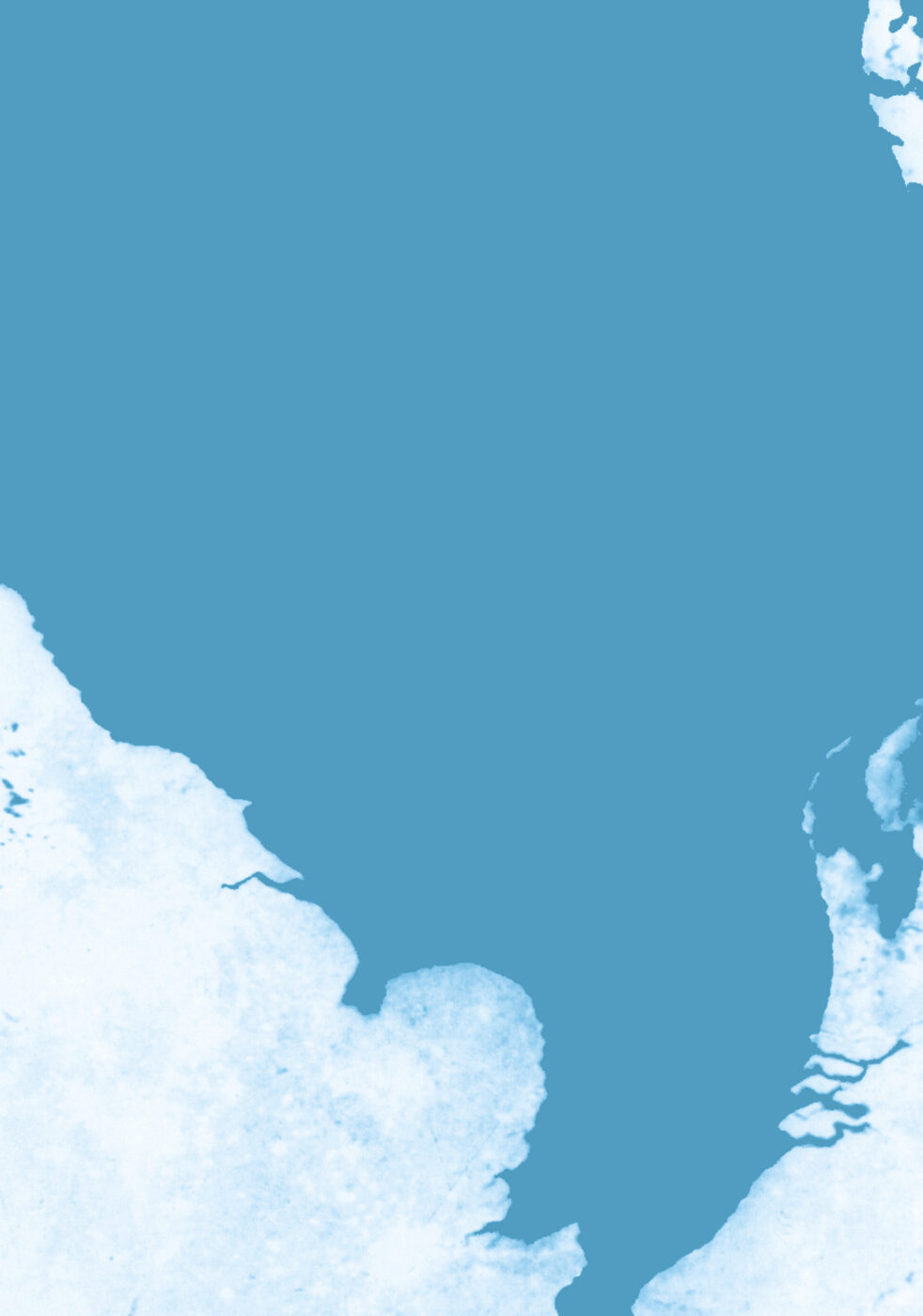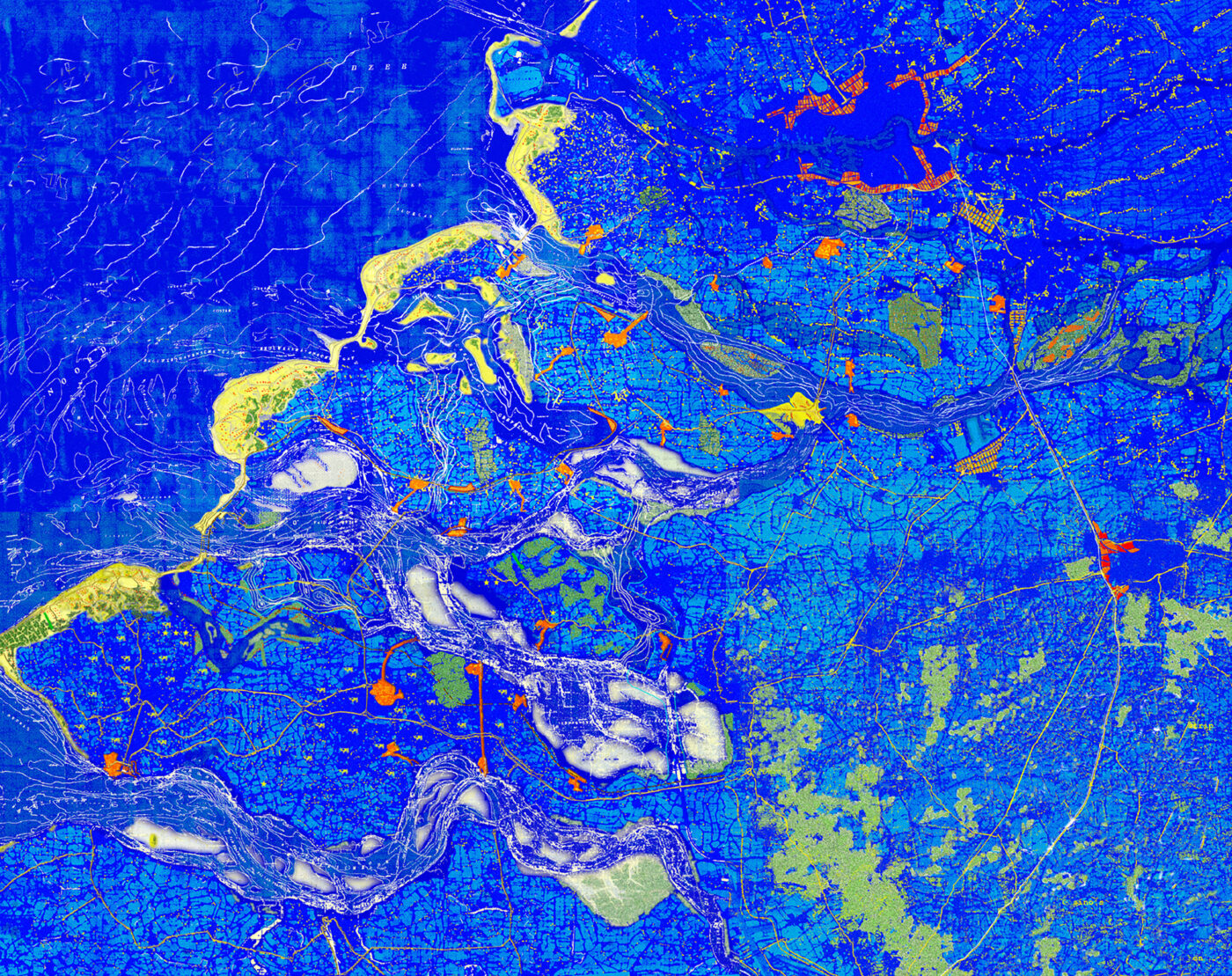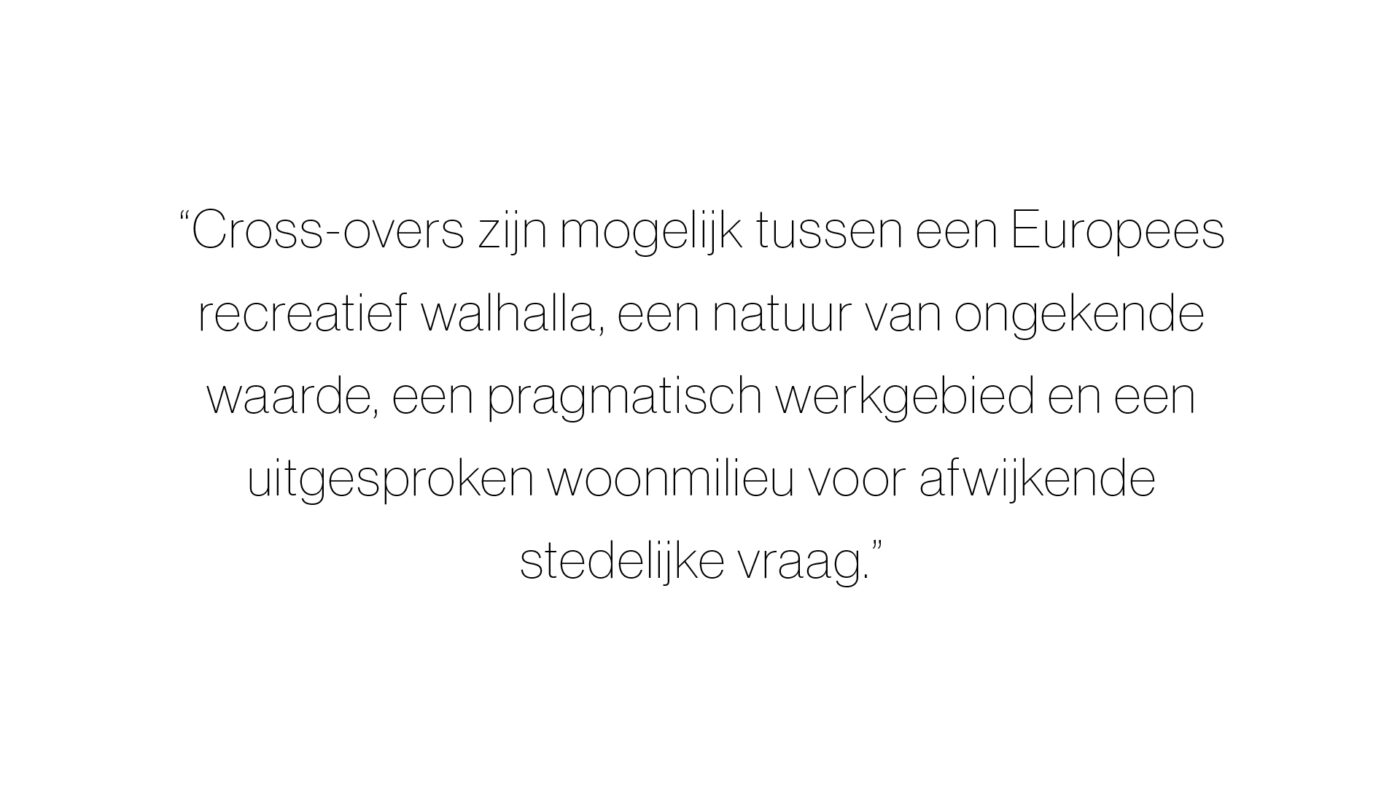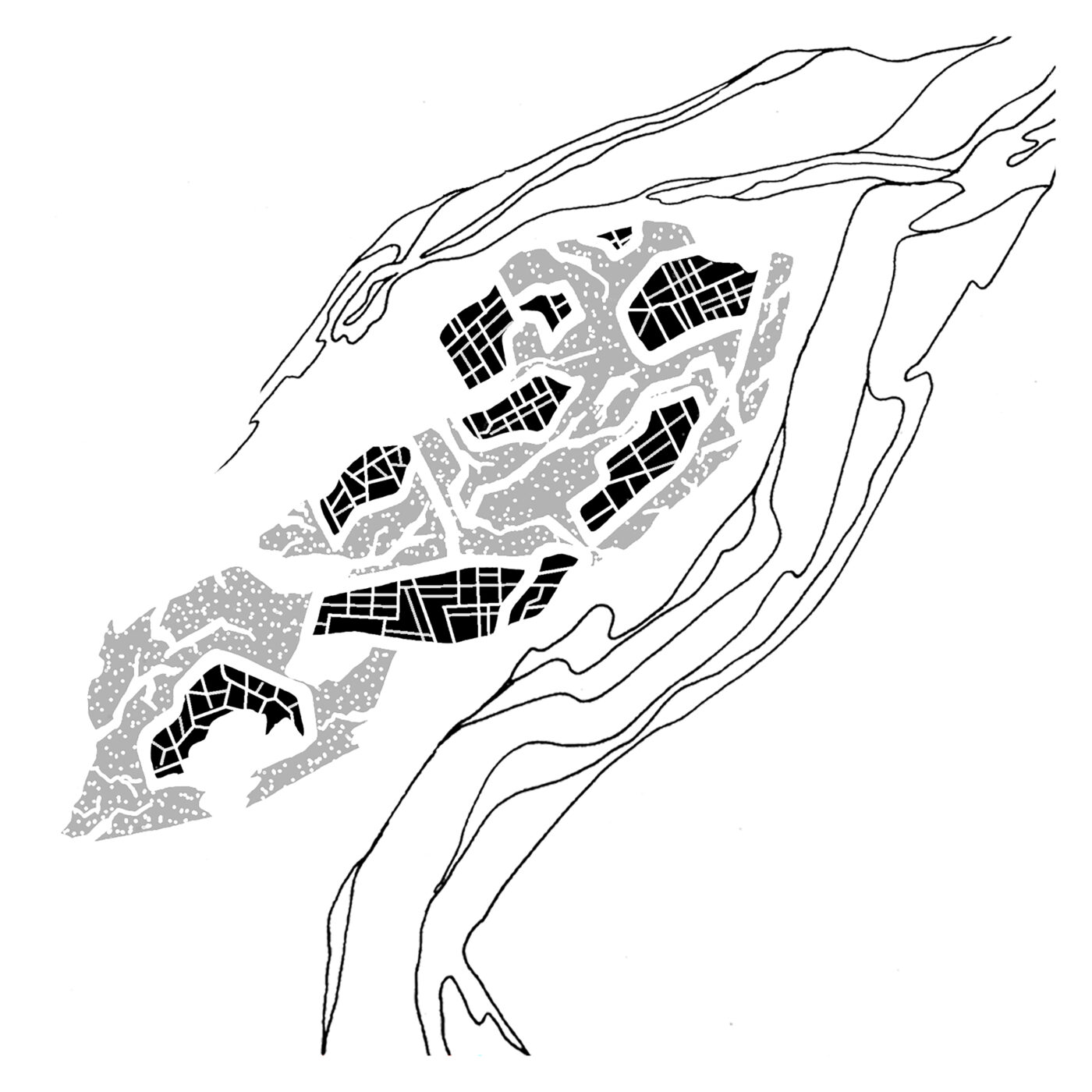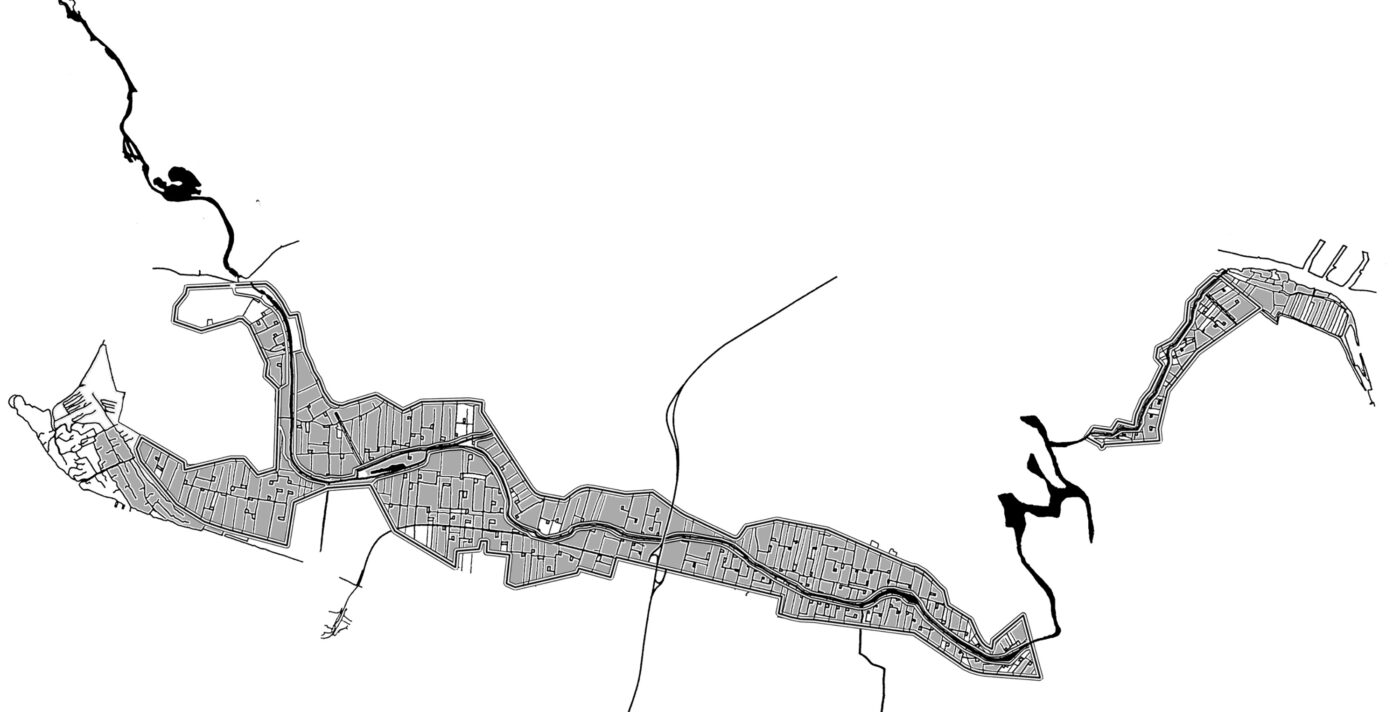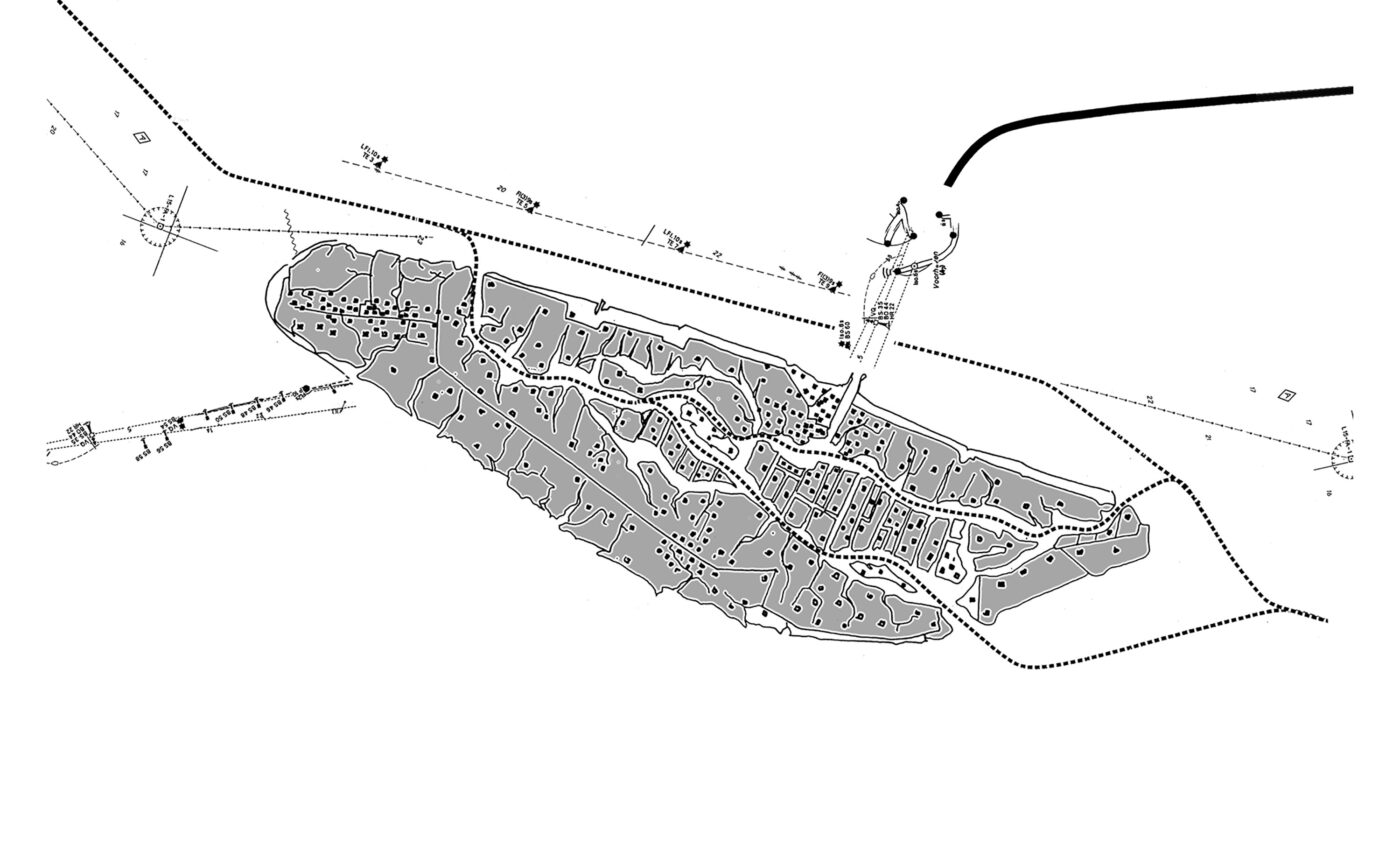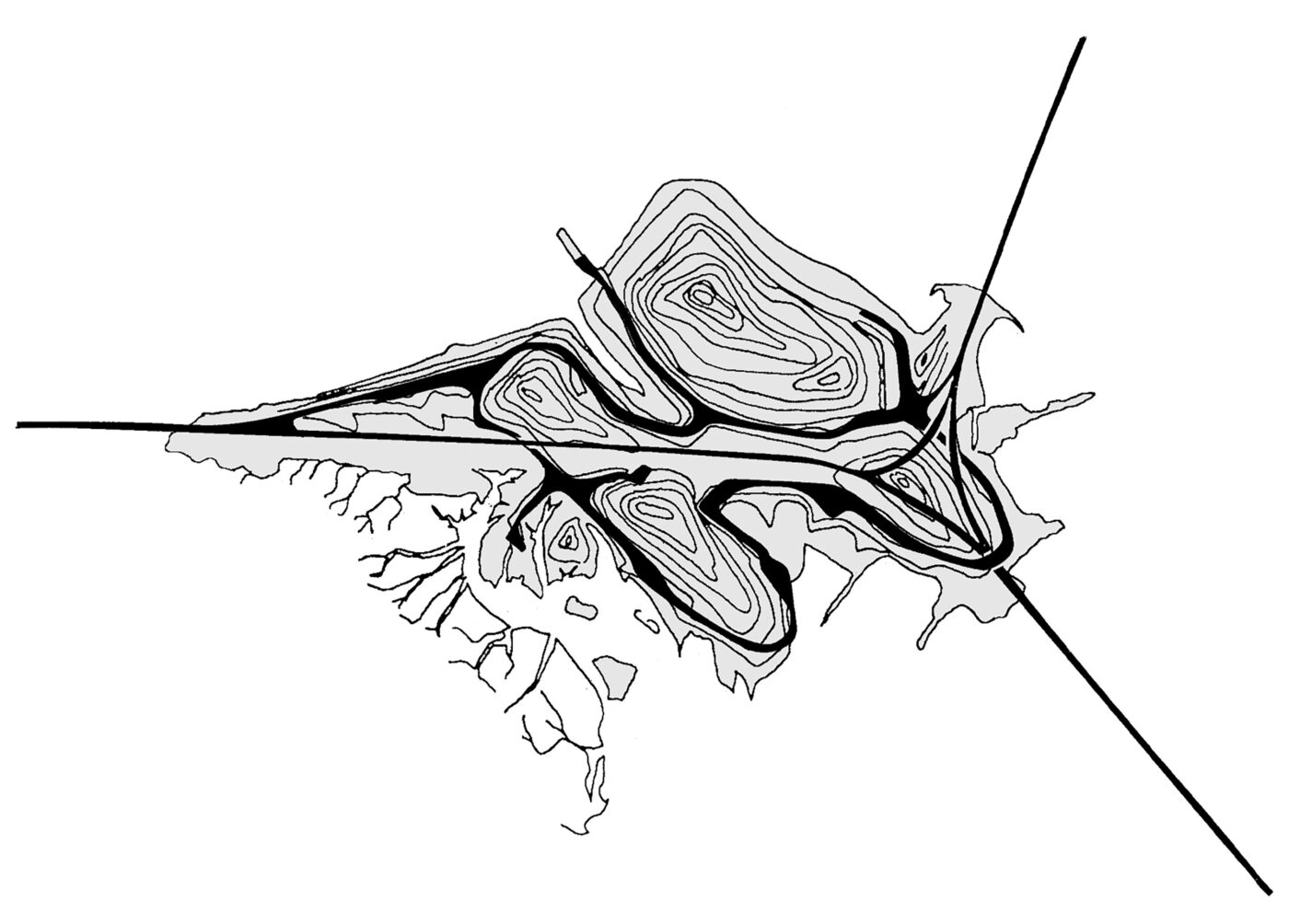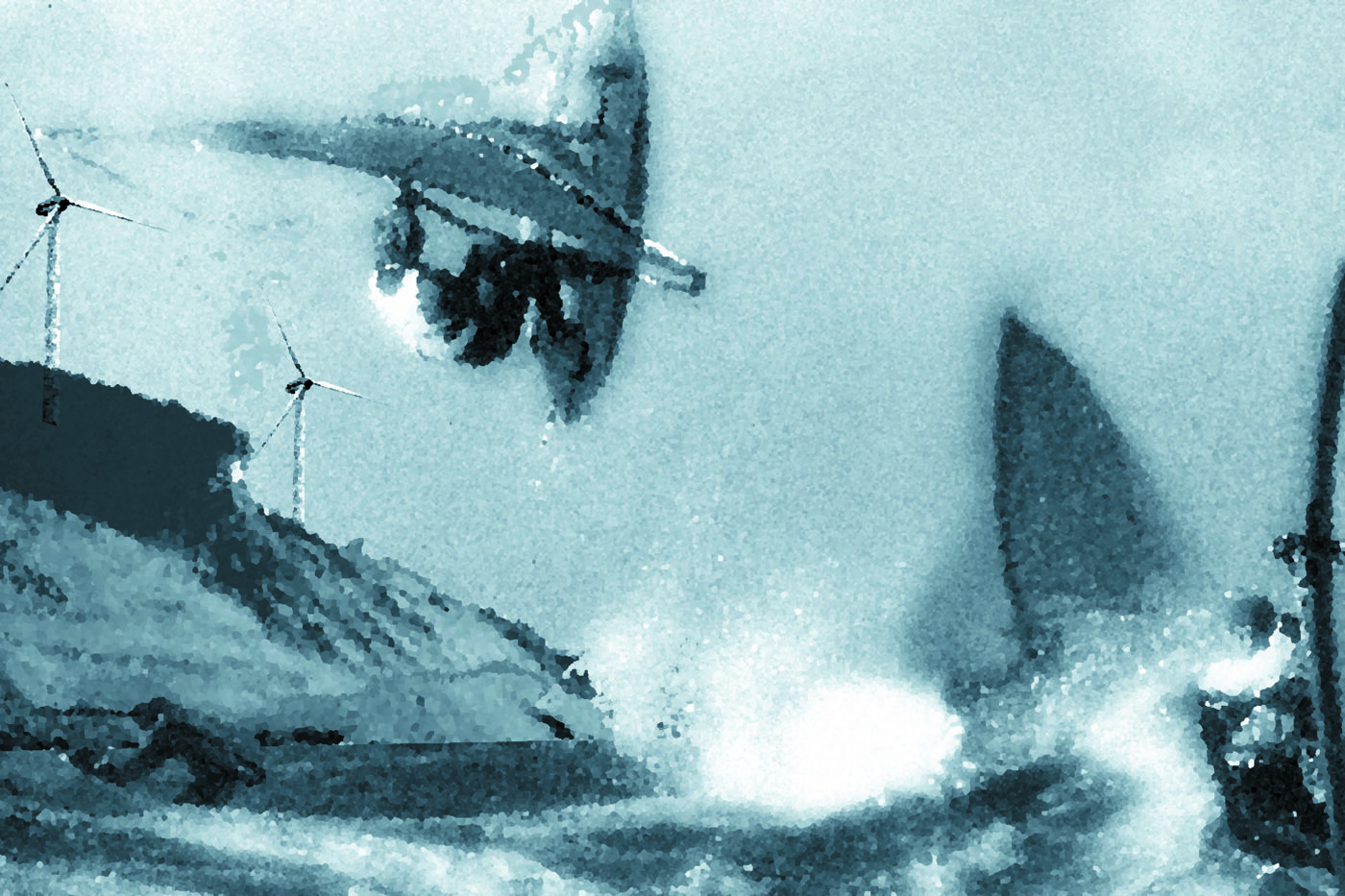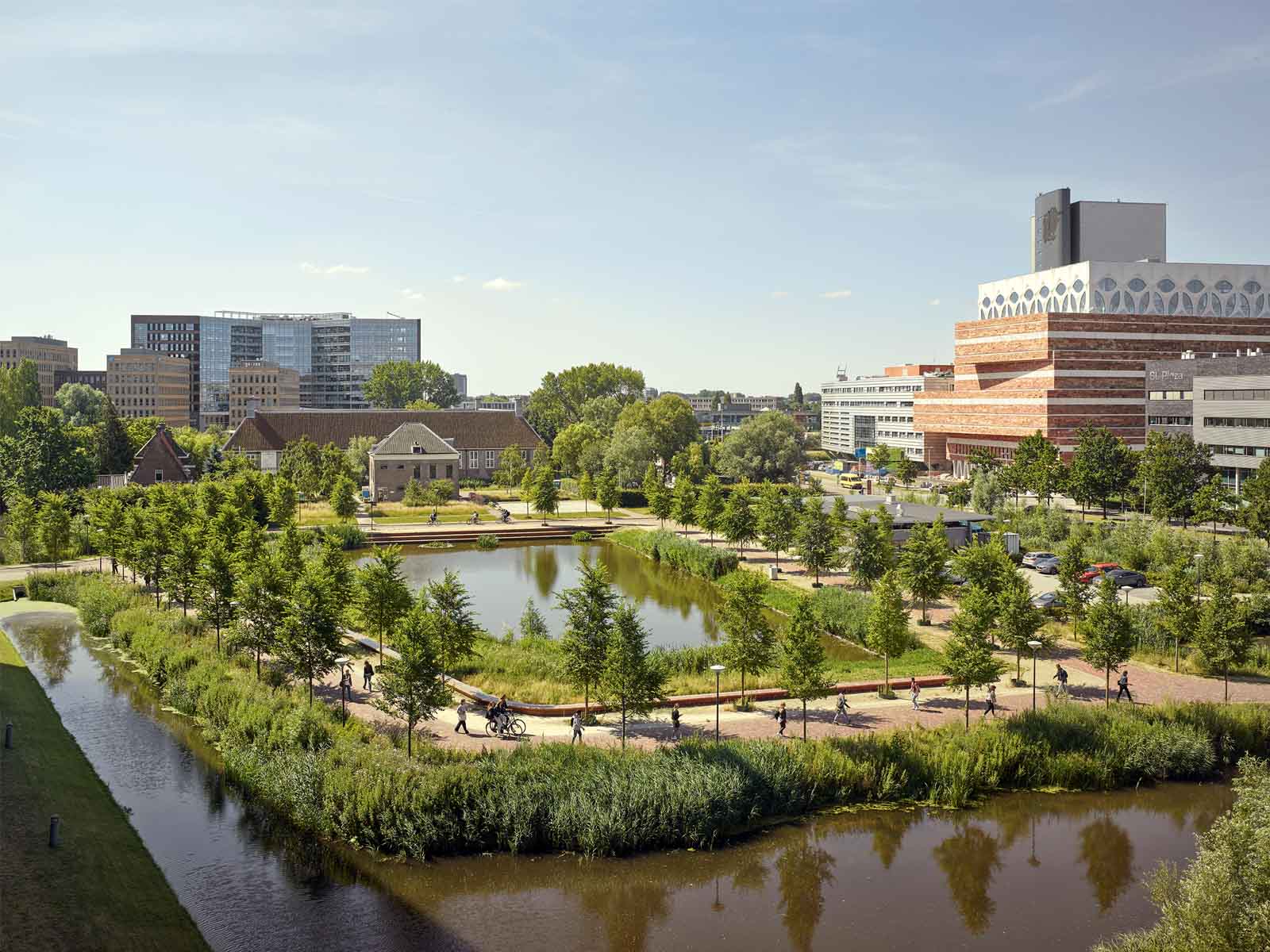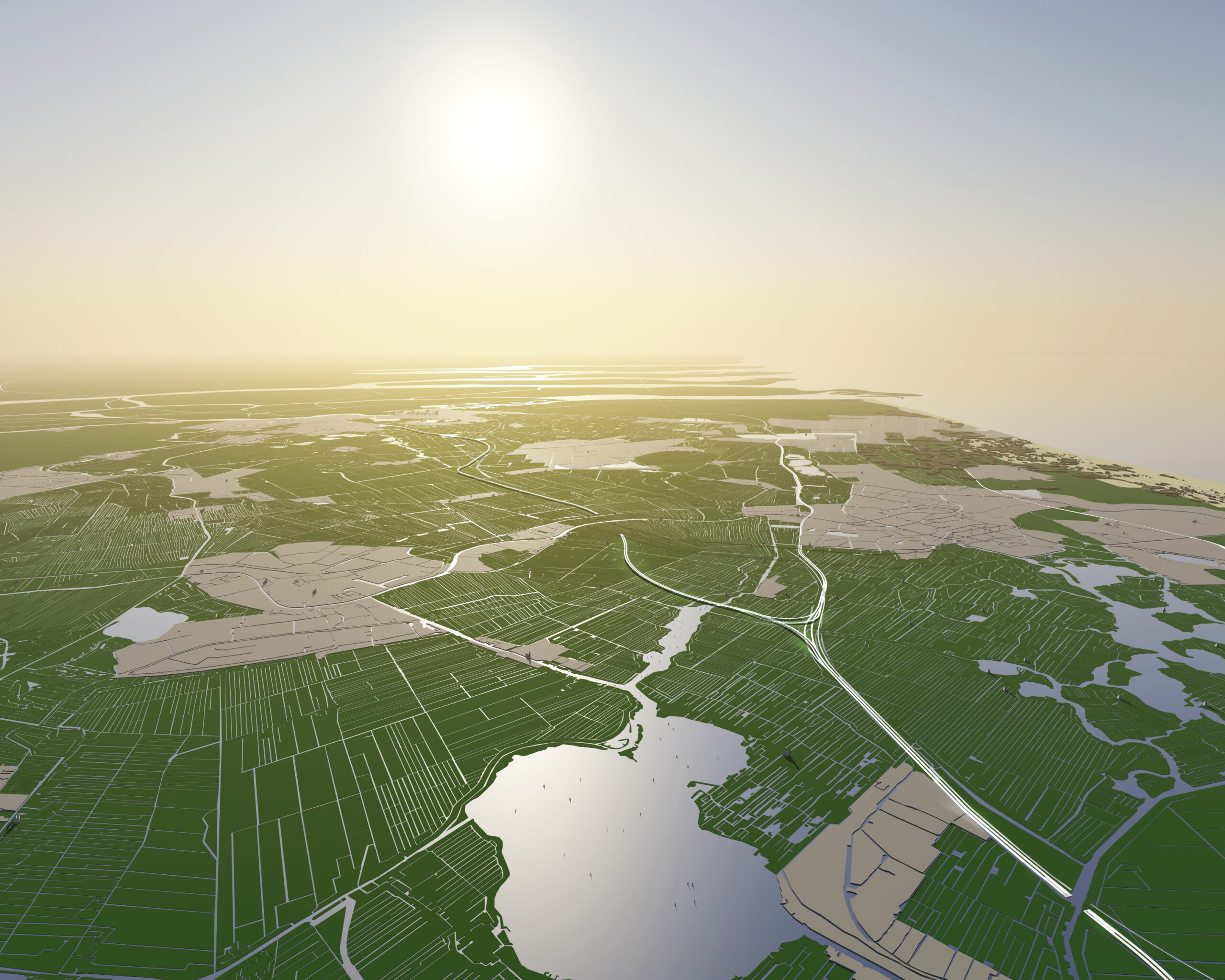Until now, the island Hoekse Waard, south of Rotterdam, has managed to stay aloof from urban expansion and has been able to focus exclusively on navel-gazing at the virginity of ploughed fields and dike bodies. In the meantime, the villages grew, the roads were widened, the traffic lights were introduced and businesses could be established on the outskirts of the villages.
Endless cross-border local discussions about the desirability or necessity of industrial zones x at exit y or a greenhouse complex at place z, are the complete denial of the situation in which the area has ended up. A reality is drowned out by a general doomsday scenario that is determined by the fact that the limits of growth are clear: roads are silting up, open water is polluting, rising sea levels require an even greater discharge capacity of the rivers, the number of marinas and berths is taxed, nature is impoverished and new residential areas evoke the feeling of being able to lie anywhere. Based on the serious conviction that spatial planning should move the boundaries for a further intensification of the landscape for economy, housing, recreation and nature, this project formulates the opportunities for the Hoekse Waard from the perspective of the Rhine-Scheldt delta.
Development strategy
Without falling into the call for administrative border corrections, a conflict-oriented model of a development agency to be established is proposed. The Golden Delta Development Company aims to realise projects of limited scale and with a clear timeline by means of deals between participants with seemingly conflicting interests. Objectives in the fields of the environment, housing, economy and infrastructure are not broken down into separate administrative units and separate tasks, but are examined for possible alliances, cooperation and combinations; New Deals.
Ambition Delta 2.0
The proposed objectives are in line with the ambition to increase the absorption capacity of the delta region. This is based on a powerful redevelopment of the landscape in the form of Delta 2.0; A package of necessary interventions that improves the hardware of the river delta as a result of new insights and preconditions. This update includes the partial restoration of the tidal system, increased (peak) discharge/collection of river and rainwater and the anticipation of sea level rise, new saline nature, a complementary freshwater supply for agriculture and industry and adapted water works.
Golden Delta
This pre-investment is the start of a process in which crossovers are possible between a European recreational Valhalla, a nature of unprecedented value, a pragmatic working area and a distinct residential environment for deviating urban demand. This crossover irrigates the Rhine-Scheldt Delta with an enormous wealth of programmatic use and at the same time offers the opportunity to broaden the palette of urban, city-related and landscape forms of living and working in the Rotterdam-Antwerp region and also shows that this area has not reached the limits of growth in any area. Agriculture, nature development and housing form the basis of the deliberate construction of a thin vegetal city. This city has strongly fluctuating numbers of users per season and has a hinterland that reaches as far as Paris and Frankfurt. It offers the perfect basis for a living, working and recreational area that manifests itself as a ‘state’ in Europe.
Ruitstad
Complementary to the development of the Delta, work is being done on the construction of a dense city. The zone along the Rotterdamse Ruit and parts of the infrastructure between Antwerp and Rotterdam will be used to use the business parks projected in the meadow areas and the empty zones around the large-scale infrastructure for the benefit of each other in full of margin and laissez faire. In Rotterdam, this means that service and distribution centres that are located in the extensive port areas are deliberately deployed in the zones on the Ruit. The development of the living, working and recreation programme will be taken up in an integrated manner. The completion of an already largely existing Gordelweg parallel to the motorway window will create valuable addresses for economic development. In collaboration with parties operating in the urban renewal of adjacent neighbourhoods, the space within the territory of the city is effectively used to shape a sustainable urban life.
